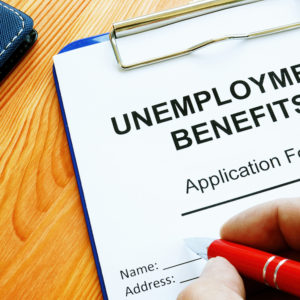Imagine how many small businesses could have been saved or how many families given a significant boost with $36 billion. Unfortunately, that didn’t happen as scam artists siphoned off $36 billion in unemployment benefits from hardworking Americans who were hurt by the economic lockdowns.
Sometimes this fraud becomes farcical. In one instance, the rapper Nuke Bizzle was arrested for unemployment fraud after bragging about it in a music video. According to The New York Times, “The authorities said that 92 debit cards loaded with a total of more than $1.2 million in benefits were mailed to addresses that Mr. Baines had access to in Beverly Hills and the Koreatown neighborhood of Los Angeles.”
It is hard not to laugh at Nuke Bizzle’s incompetence, but there is nothing funny about fraudsters stealing billions from struggling Americans. The Foundation for Government Accountability recently released a report documenting unemployment fraud in 2020 and proposing solutions. Thankfully, a few simple fixes will ensure that unemployment checks go to those hurt by COVID-19, not opportunistic charlatans.
In the middle of punishing economic lockdowns, it was understandable that Congress expanded unemployment benefits. But Congress didn’t do enough to prevent fraud. Within months of the CARES Act’s passage, government watchdogs were already warning there would be tens of billions in fraudulent claims.
States pay unemployment claims from trust funds that are now tens of billions of dollars in debt mainly because of unemployment fraud. This imbalance is forcing states to borrow $50 billion from the federal government to ensure they can keep making payments. Clamping down on fraud would save state governments from fiscal insolvency while getting money to those who need it.
The largest example of fraud in 2020 occurred in Washington state, where fraudsters stole approximately $650 million. The Nigerian fraud ring, Scattered Canary, took advantage of the fact that state officials had dropped waiting period requirements and other safeguards to speed up the distribution process.
Embarrassingly, the Washington Employment Security Department (ESD) software couldn’t detect fraudulent claims filed by fake identities of ESD employees. As one ESD employee said, “How does our own agency not know that we’re not unemployed? How did our own system not catch it?”
Unfortunately, a similar process played out nationally, as states from Rhode Island to Arkansas to Californ
One way to recover money lost to organized criminals and others intent on defrauding American taxpayers is to require the IRS to meticulously crosscheck the records it uses to gauge whether an applicant is eligible to receive unemployment insurance benefits. IRS employees, for example, should give as much weight to accuracy as they do to speed.
In the rush to provide much-needed relief to Americans suffering financial distress, the IRS no doubt sacrificed accuracy for quick delivery of the enhanced unemployment and so-called stimulus checks. IRS employees should instead carefully audit their records before sending relief payments.
This will help ensure that all the money Congress allocates for pandemic relief goes to those who are both eligible and most in need of the money. It will also go a long way toward ensuring unemployment taxes don’t creep up in the months and years ahead, something that would further hurt an already-battered economy and job market.
It’s critical, also, that states recoup funds mistakenly sent to ineligible applicants. There is a disturbing trend, however, to waive unemployment-insurance overpayments. States aren’t required to do this but, in the $900 billion stimulus package passed last month, they were given the authority to waive overpayments.
Some people argue that since it’s the government’s mistake, those who accidentally receive money shouldn’t have to return the money. This train of thought, though, is misplaced.
If someone stumbled on thousands of dollars in cash in the street or at their workplace, he or she is expected to make a good-faith effort to return the money to its rightful owner before admitting defeat and keeping it. That isn’t a controversial opinion.
Similarly, those accidentally given money that’s not entitled to them shouldn’t keep the money as that hurts the rightful recipient and would ultimately drive up unemployment-insurance taxes on businesses desperately clawing their way out of the downturn.
This is a reasonable expectation, especially during difficult times. All those entitled to unemployment insurance should receive their rightful share, and those who try to exploit the circumstances at the expense of taxpayers and jobless Americans shouldn’t be encouraged by public policy that rewards bad behavior.

